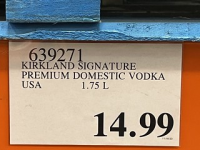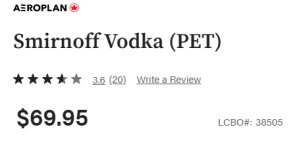Just so everyone is clear, the higher price of booze in Ontario/Canada is a product of the taxes applied, not the LCBO markup. The LCBO is absolutely hated by booze producers, as they squeeze them harder than Wal-Mart, as the LCBO is the biggest alcohol purchaser in the world. There is a legal fight ongoing as some of the big corporate producers messed around with the conditions the LCBO sets about the lowest prices, and the LCBO held back some payments as a consequence.
Personally, I have no desire to see the LCBO go away. It offers an excellent selection (go to any prive store in BC or Alberta to see how awful the selection typically is), keeps the prices as low as possible with the taxes levied, and puts a lot of funds back into the provincial coffers. If you want cheaper booze, fine, demand the taxes are lowered. Just expect that those tax dollars have to be found elsewhere or cuts will be made as a consequence. BC has a hybrid system, where there are government stores and private, but the prices for both are broadly set equally. It's okay, but alcohol is often slightly more expensive than Ontario.
Per this article (
Where to Find Cheap Booze in Canada), Quebec leads the way, but the difference between Alberta, with fully privatised sellers, and Ontario, with mostly public sellers is marginal and depends on what you're buying, and this despite lower tax in Alberta. For me, if I'm going to pay the same amount, I'd rather see all the profits either go into the public coffers or workers' paycheques. Plus, unless you like Bud, Smirnoff and Captain Morgan, the selection in Ontario is infinitely better. If you want anything unusual in Alberta, it requires a trip to a more specialty shop, which inevitably charges a significant premium.




















